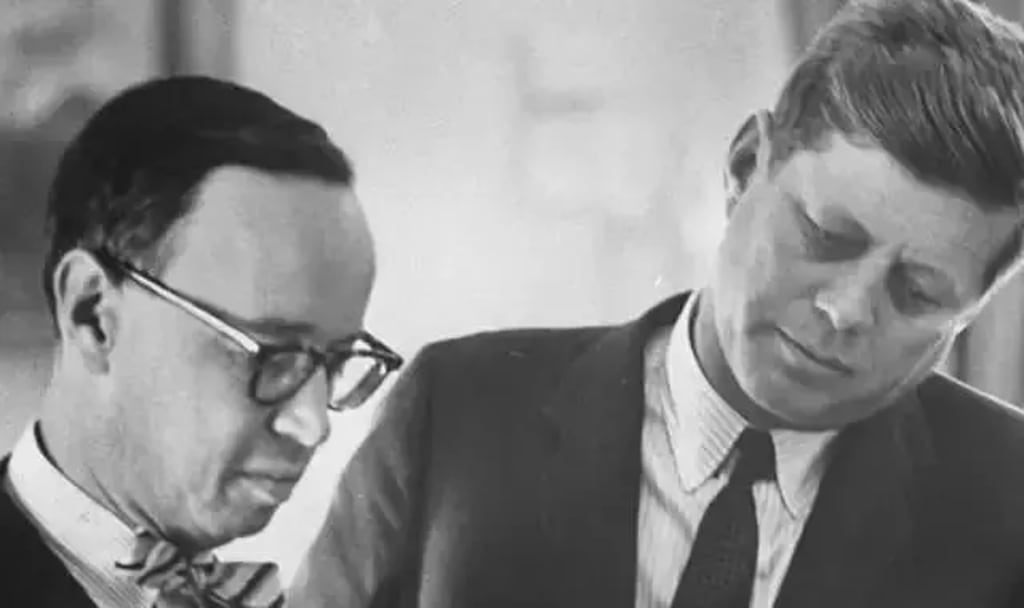
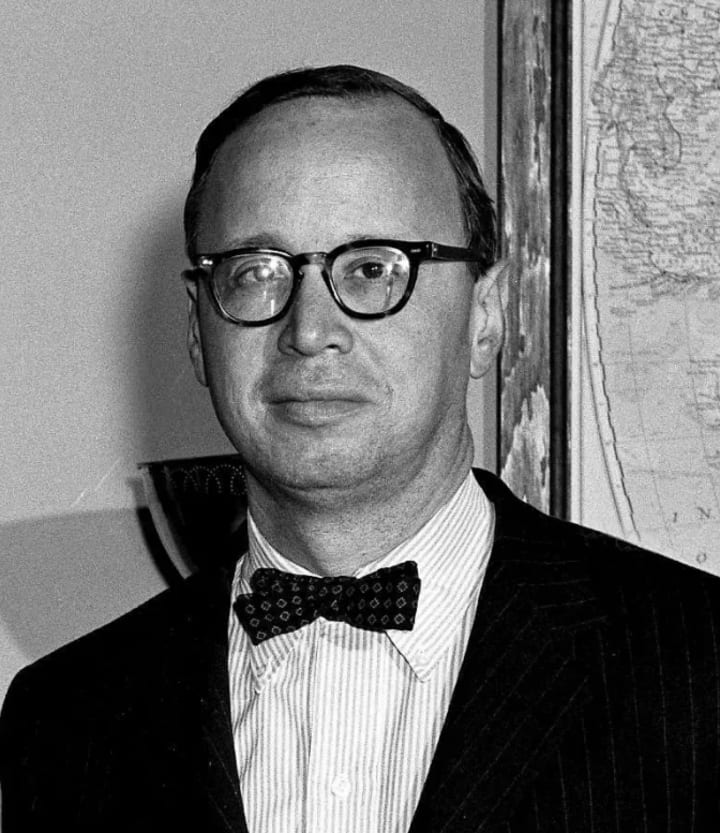
Richard Hofstadt's works will enter the public version field in 2021. The simplified Chinese market launched five versions of "Anti-Intellectualism in America" that year, which also caused a wave of criticism against Hofstadt. , American political traditions, and discussions of anti-intellectualism. And Arthur M. Schlesinger, Jr., before the publication of "America Divided: Reflections on a Multicultural Society", was only "A Thousand Days: John F. Kennedy in the White House" (which still remains today). Considered the most complete and authoritative account of John F. Kennedy and his administration) was translated in excerpts in the 1980s as an internally distributed reading, and other important works of his, such as published in 1945, were acquired the following year. Pulitzer Prize in History for "The Jackson Age", "Core: The Politics of Liberty", a postwar liberal manifesto published in 1949, "The Roosevelt Age" trilogy, a grand survey of the "New Deal" and Roosevelt, The reflection and self-redemption of the myth of the "strong president" "The Imperial President", "Robert Kennedy and His Times", an elegy record of the charismatic idealistic leader Robert Kennedy, etc., have not yet entered the domestic readers' minds. vision. Although these works were published in the last century, there is still reason to pay attention to and discuss Schlesinger today. 1 During the 1980 Democratic National Convention, Senator Teddy Kennedy delivered the "The Dream Shall never Die" speech at Madison Square Garden in New York, seeking the Democratic presidential nominee nominate. In the speech, Kennedy defended post-World War II liberalism, criticized retired Hollywood actor and Republican presidential candidate Ronald Reagan, called Nixon an "Imperial Presidency" and implicitly accused then-President Jimmy · Carter's moderate political stance. Although ultimately lost to Jimmy Carter, the speech is considered Kennedy's best speech and one of the most memorable political speeches in modern American history. Arthur M. Schlesinger Jr. and Ted Sorensen were the ones who wrote the final version of the speech. The concept of an "imperial president" has also been used to this day, especially during the Trump presidency, which recalls two decades of post-war presidential executive power that greatly expanded.
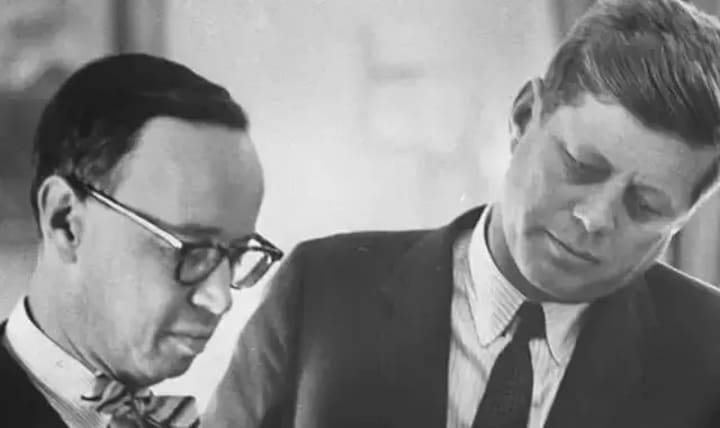
Jr. Schlesinger came from a family of historians. His father, Arthur Schlesinger, received a doctorate from Columbia University and began teaching at Harvard in 1924, pioneering research in social and urban history, especially in women's history, Influential in the field of immigration history. During his time at Harvard, Schlesinger Jr. studied under Perry Miller and F. O. Matthiessen, a well-known intellectual historian and founder of American studies at the time. One, his influence was widespread, for example, Margaret Atwood dedicated "The Handmaid's Tale" to Miller and Mary Webster; Matheson was an educator, scholar and literary critic, in influential in American literature. The benefit that Schlesinger Jr. has received from these well-known scholars and personalities is obvious. Of course, apart from that, he was diligent enough that he didn't slow down after "The Age of Jackson" won the Pulitzer Prize. That natural zeal and attention to scene and character by nineteenth-century novelists." 2 "America Divided: Reflections on a Multicultural Society" is Schlesinger Jr.'s thinnest book (most of his works can be called masterpieces), originally published in 1991, Republished in 1992 and 1998, the first edition topped the New York Times bestseller list for several weeks, even surpassing Al Gore's "Earth in the Balance" of the same period. Today's readers, if they only start from the title "America Divided", are likely to misunderstand the content of this book, especially since the Trump era, the rise of right-wing ultra-conservative forces, from the "Capitol Hill" riots to the current overthrow of Romania In the case of Roe v. Wade, the political polarization became more and more serious, and the United States seemed to be in a state of great division. But Schlesinger Jr. was responding to the "canon fight" in America in the 1990s, as minority groups gained more rights, so did their voices -- artistic, academic, political -- as well. more and more heard. As a result, pressure is mounting for public schools to seriously respect cultural differences, and minorities and their supporters are calling for curriculum reforms in public schools, including adding a curriculum on Africa, teaching minority languages, traditions, and the arts, and many more. Many welcome the uplifting impact of diversity, others see it as a threat to Anglo-Saxon heritage, which in turn has sparked a national debate over public school history and literature curricula and reform, so Schlesinger Jr. Much of the book is devoted to the importance of history as a discipline and the debate over public school education.
In the chapter "History as a Weapon", he pointed out that "history is to the nation as memory is to the individual. The historian's goal is to strive for accuracy, delicacy and objectivity in the process of recreating the past", consciously Using history to elevate a certain group or degrade a certain group will damage the objectivity of history. In fact, using history as a weapon is an act of abusing history. He turns to the facts: "We are still products of this age, trapped by our personal experiences, and like all mortals with original sin, tossed between partisanship, prejudice, dogma, fear and hope." The book traces the myths of "one nation", "melting pot" and "unity", and criticizes the "Afrocentric theory" that "there is always a black person doing the real thing", worrying that under the influence of racial fanaticism , Afro-centric curriculum and continued radical attacks on classic historical and literary texts will lead to growing racial hostility that threatens America as a people and further Balkanization of American society—the “melting pot” There is a danger of becoming a "Tower of Babel". 3 As a major post-war liberal intellectual, Schlesinger Jr. spent his life advocating freedom and human rights. For example, he first admitted, "We white Americans are a firm race in law, system, customs, conditioning, and even soul. activists”, but he was also slightly concerned that “white guilt has been pushed too far.” The publication of "America Divided" came as a surprise to those who knew him, and he immediately became the object of criticism by liberals. The book's epilogue concludes that "political correctness, whether viewed from the left or the right, infringes on liberal democracy," and America Divided was welcomed by conservatives (often his opponents). Schlesinger Jr seems to be trying to find a middle ground between radical multiculturalism on the left and monoculturalism on the right, in his view, "monoculturalists include ultra-patriots, religious fundamentalists, evangelicals , laissez-faire dog
Today, we can’t help but be amazed at Schlesinger’s forward-looking and forward-looking. He expressed the implicit trend of tribalization and fragmentation when fashionable concepts such as multiculturalism, political correctness, and identity politics were just emerging. worry. In a sense, America Divided is one of his most prescient and timeless works. However, we cannot ignore that before most people realize the necessity of political correctness and identity politics, groups such as immigrants, people of color, women, sexual minorities and other groups are generally subjected to structural and systemic injustice. The Immigration Act of 1924 shut out large numbers of Asians and Jews. A series of Jim Crow laws that existed since 1876 resulted in the fact that black people have been in a relatively disadvantaged position economically, educationally and socially for a long time. After Lyndon Johnson and civil rights activists pushed Congress to pass the Civil Rights Act of 1964 and the Voting Rights Act of 1965, the pride of minorities like immigrants erupted in volcanic fashion. It took white Americans a while to realize that the privileged position they took for granted was beginning to come to an end. Schlesinger Jr. has not escaped his limitations as a de facto privileged group—his crayon portraits have appeared on the cover of Time magazine, he is in and out of the White House, he is close to Washington’s political elite, and he is close to Manhattan’s literary The circle is very wide, and Marilyn Monroe is his guest of honor. As Schlesinger Jr. himself has repeatedly reminded us, in early American history, a large percentage of the population was not allowed to exercise political power, in a non-white, non-male traditionally In a country threatened by violence, before the civil rights movement and the rise of women in recent decades, these people had few opportunities to express their identity and sense of ethnicity on a national scale. The concepts of freedom, equality, and rights are also the basic elemen
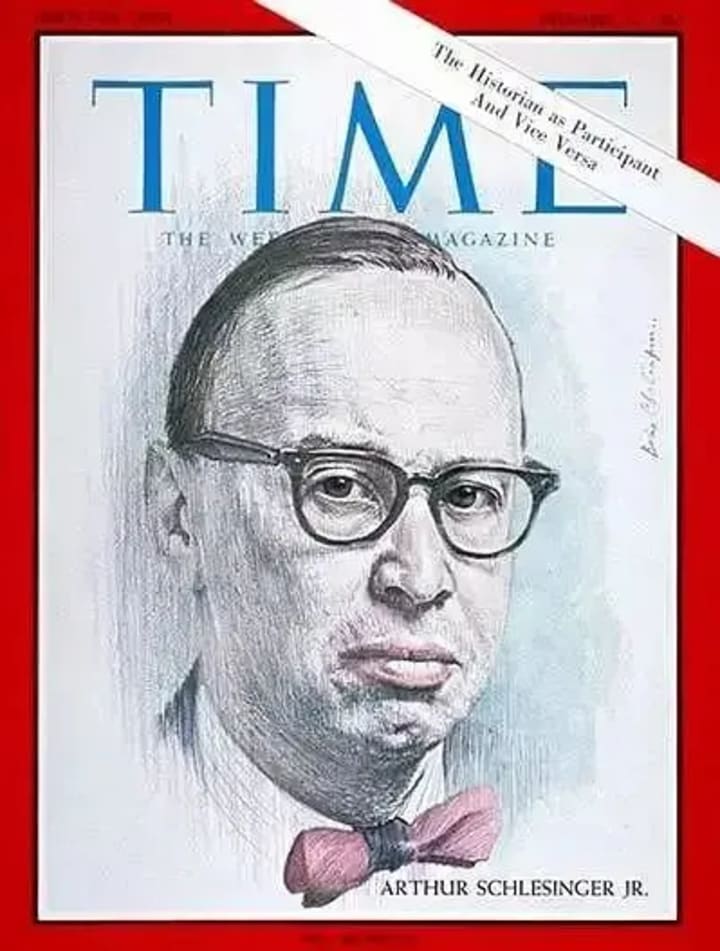
Thirty years have passed since the publication of this book, and many changes have taken place in the orientation of liberalism. However, the struggle for ethnic consciousness, identity, women's rights, and political correctness is far from over. With more party and class factors mixed in, people from different positions are still quarreling over the same opposition. Just recently, the Supreme Court overturned the landmark Roe v. Wade case on women's right to abortion, causing a national shock. At least in recent years, the United States, as a "melting pot" and "a nation", seems to be moving further and further in the direction of division and polarization. Witnessing so many arguments and tearing apart, apart from the fragility of its argument and logical chain, we still feel the shock of familiarity reading "America Divided", and this familiarity just confirms that Schlesinger Jr. concerns ten years ago.
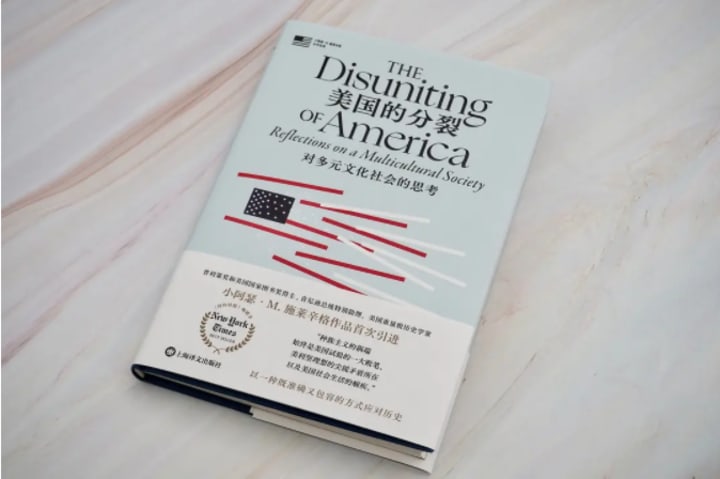
About the Creator
nian xi
Share insights on reading books





Comments
There are no comments for this story
Be the first to respond and start the conversation.